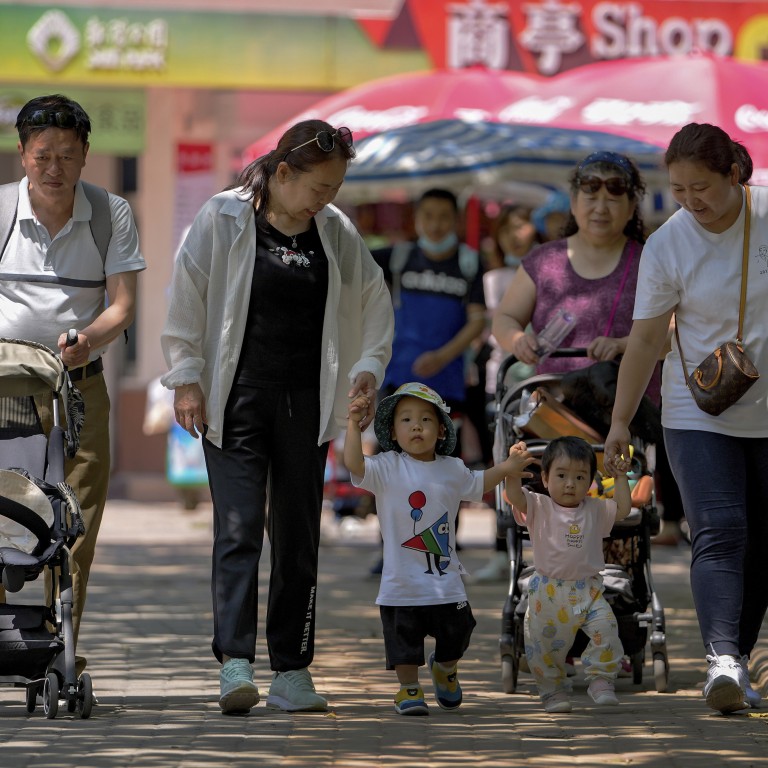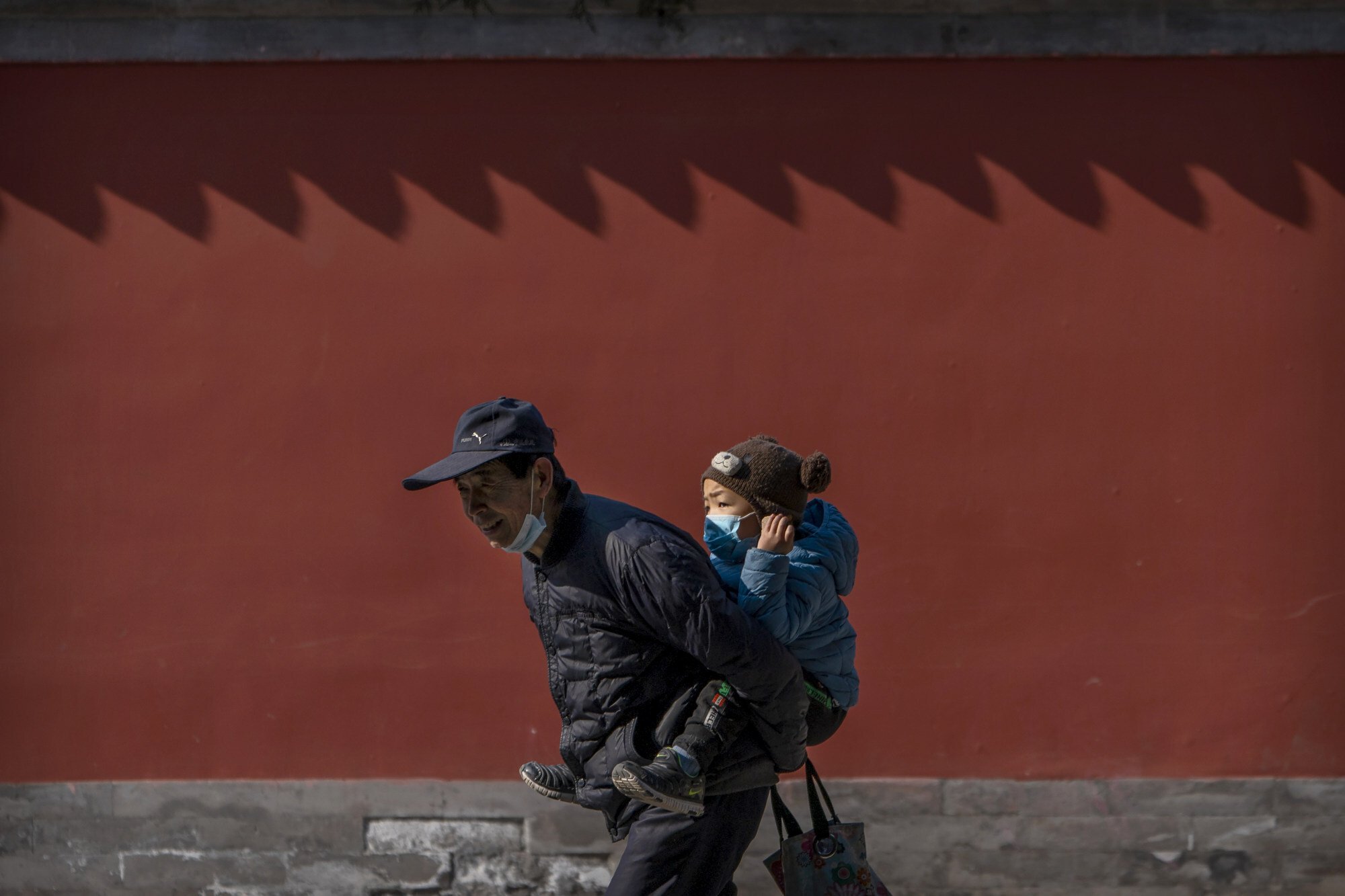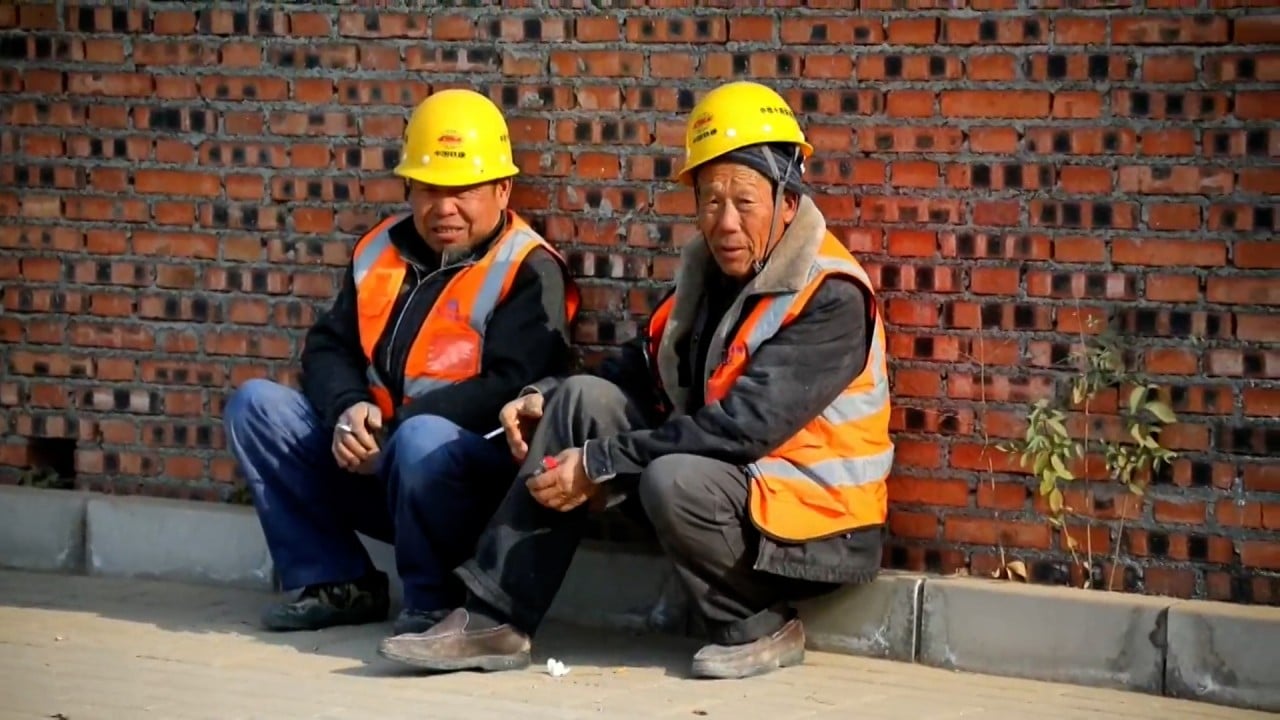
As China ages, another consequence looms for women and housework
- Help from young grandparents in childcare and housework has cushioned the impact of gender inequalities for many working women. But as they age, the burden of care is likely to return for women
In China’s multigenerational society, gender inequality is intrinsically tied to the senior population – parental co-residence remains common, with parents actively involved in providing childcare and housework support for their adult children, freeing up time for their employment.
To explore the dynamic links between gender equality at home and how it is shaped by parents, we conducted a series of quantitative analyses using data of married couples from the China Health and Nutrition Survey (seven waves between 1997 and 2015) – a large-scale longitudinal data set which provides a diverse sampling of the Chinese population across a wide-ranging set of socioeconomic factors.
Second, parents play a significant role in shaping gender inequality at home. Their presence (that is, parental co-residence) is associated with a significant reduction in the amount of time spent on housework for their adult children, for both men and women, but particularly their daughters or daughters-in-law, thereby reducing gender inequality at home.

But when they became sick, co-residence with adult children was positively associated with housework time, again with the effect significantly stronger for women (thus exacerbating gender inequality).
Finally, the link between parents and their adult children’s housework time has been evolving under China’s transition. As the economy privatised, co-living with parents became an increasingly important resource for married women to reduce the time spent on housework.
Collectively, our findings suggest that parents have cushioned some key detrimental effects for women and, in this sense, prevented China from a more severe setback in gender inequality – where women would have done all the housework.
Importantly, our finding highlights that China has become increasingly reliant on the “parent-as-insurance” model over the past decades. Parents have absorbed more housework as the economy is privatised, probably to lend further support for their adult children to survive in the increasingly competitive workplace.
Such a model has clear disadvantages and risks. It has disadvantaged some groups of people – not everyone is able or willing to co-live with their parent. Those without such support are likely to do more housework, which has potentially adverse implications on their ability to spend time in paid employment.
More importantly, our findings point out that the positive impact of parents for gender inequality at home is subject to parents’ health. Overall, we find parents have helped reduced gender inequality in housework time, but this is because only a small minority (17 per cent) of the respondents reported having a sick parent.
During the survey time (1997–2015), the parents were relatively young and healthy – a pattern unlikely to be sustained.
In the context of China’s ageing population, our study implies a very worrisome trend. While the one-child generation have benefited from the support of their relatively young and healthy parents in the past two decades, the picture is likely to flip as their parents age.
With minimal government-provided caregiving support and as more parents of the one-child generation grow old and need familial care, the burden is likely to fall on women, leading to greater housework demands. Given that increased housework is associated with exits from employment, risk of divorce, and poor health outcomes, the consequences are potentially far-reaching.
Xiao Tan (@monicaxtan) is a postdoctoral research fellow at the Centre for Contemporary Chinese Studies and the School of Social and Political Sciences, both at the University of Melbourne
Leah Ruppanner (@leahruppanner) is an associate professor of sociology and co-director of The Policy Lab at the University of Melbourne



